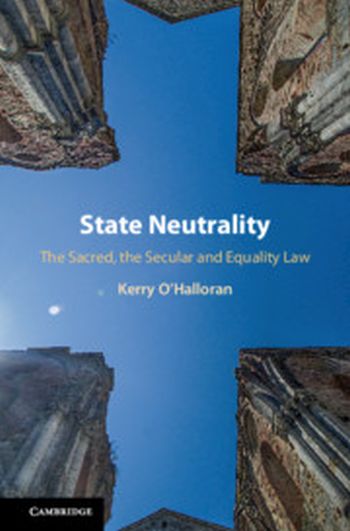
The state is legally required to be neutral towards religion, but in many countries it is increasingly anything but. This book conducts a comparative legal analysis of the church–state relationship within and between western countries – including the USA, France and Israel – that are key players in international and domestic dynamics in which religion and religious conflict take centre stage. It analyses how government accommodates diversity, how policies of multiculturalism and pluralism translate into legislation, the extent to which they address matters of religion and belief and what pattern of related issues then come before the courts. Finally, it considers how civil society and democracy in general can maintain a balance between the interests of those of different religions and beliefs and those of none.
In this illuminating study, Kerry O'Halloran shows how the relationship between religion and government affects civil society and the functioning of democracy in North America and Europe.